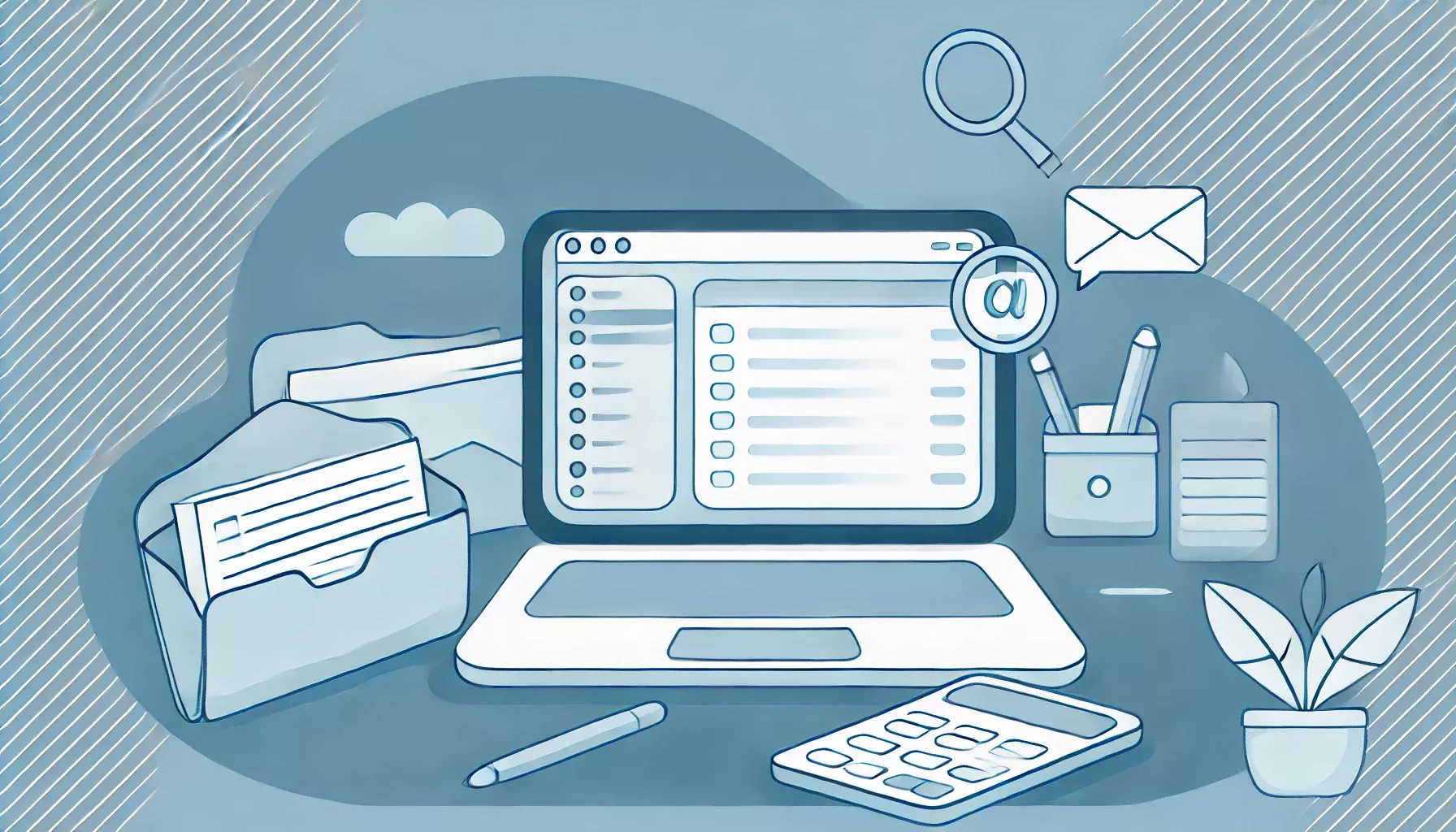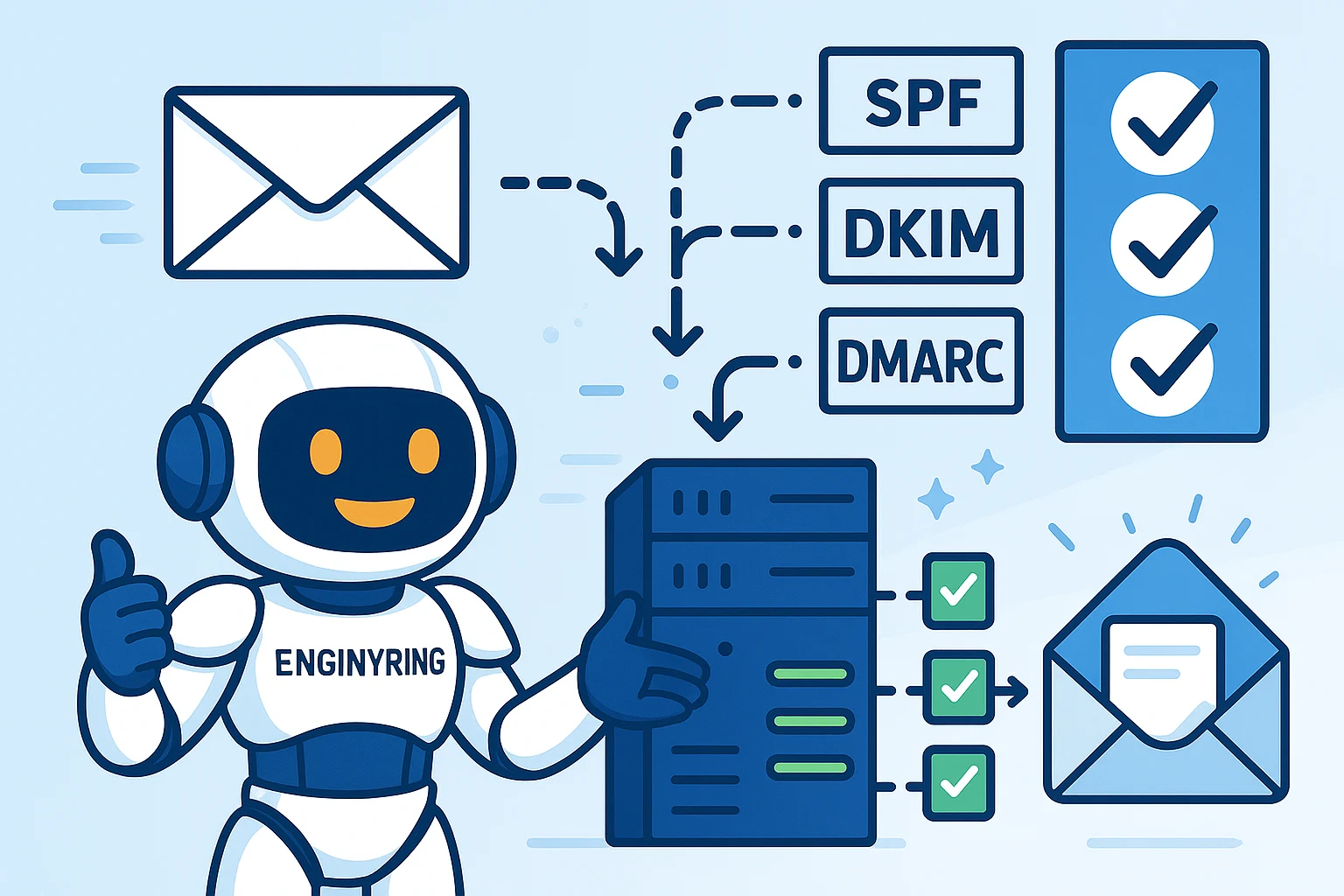
Why Should You Get a Mail Hosting Plan? Essential Benefits and Features Explained
In a world where email remains one of the primary communication tools for businesses, choosing the right mail hosting plan is crucial for professional success. Mail hosting, also referred to as email hosting, provides a secure, dedicated platform to manage and maintain email accounts associated with your business domain. This guide explores why a mail hosting plan is essential, covering everything from enhanced security and storage to customized email addresses and improved productivity.
For expert mail hosting solutions, visit our Mail Hosting Services page.
What is Mail Hosting?
Mail hosting is a service that manages and stores email data on dedicated servers, allowing businesses to create custom, domain-based email addresses (e.g., name@yourbusiness.com). Unlike free email providers, mail hosting offers advanced features like enhanced security, spam protection, and reliable data backup, ensuring a seamless email experience tailored to business needs.
Key Reasons to Get a Mail Hosting Plan
If you’re still considering whether mail hosting is right for you, here are some compelling reasons why investing in a dedicated mail hosting plan can benefit your business:
1. Professionalism and Branding
Using a custom email domain (e.g., name@yourcompany.com) builds trust and reinforces your brand identity. Customers are more likely to take your business seriously when communication comes from a personalized, professional email address, rather than a generic provider like Gmail or Yahoo.
2. Improved Security and Data Privacy
With mail hosting, you gain access to advanced security features that help protect sensitive data. Features like spam filtering, virus scanning, and end-to-end encryption keep your business information secure. Additionally, mail hosting providers often implement security measures such as multi-factor authentication (MFA) and data loss prevention (DLP) to prevent unauthorized access and data breaches.
3. Dedicated Support and Maintenance
Most mail hosting providers offer 24/7 technical support to help resolve issues quickly. This support can be invaluable for businesses, as email downtime or technical issues can disrupt daily operations. By investing in a mail hosting plan, you can ensure reliable access to expert support whenever you need it.
4. Increased Storage and Scalability
Mail hosting plans offer ample storage options to suit your business needs. Unlike free email providers, which often limit storage capacity, paid mail hosting allows you to expand storage as your business grows. This flexibility means you won’t have to worry about running out of space or having to delete important emails to free up room.
5. Better Spam and Virus Protection
Mail hosting plans include advanced spam and virus filtering, which helps ensure that your inbox remains free from harmful content. By leveraging powerful filtering technologies, mail hosting providers can identify and block malicious emails before they reach your inbox, protecting both your business and clients from cyber threats.
6. Customizable Mailboxes and Email Addresses
With mail hosting, you can create custom email addresses and manage multiple mailboxes under one account. This feature is particularly useful for larger organizations that need separate email addresses for different departments or employees. Customizable options allow you to tailor your email infrastructure to your business's unique needs, improving organization and efficiency.
7. Data Backup and Recovery
In the event of accidental deletions or server failures, mail hosting providers offer reliable data backup and recovery options. Backing up your email data protects against data loss and ensures that you can retrieve important emails if needed. This is especially important for businesses that rely on email communication for contracts, client information, or financial transactions.
8. Compliance with Industry Standards
For businesses in regulated industries, compliance is crucial. Many mail hosting providers offer features that help ensure compliance with industry standards like GDPR, HIPAA, and PCI-DSS. These providers often include features like data encryption, secure storage, and audit logs to meet regulatory requirements.
9. Enhanced Productivity with Collaboration Tools
Some mail hosting plans come with built-in productivity tools, such as shared calendars, task management, and contacts. These features streamline team collaboration and help improve communication across departments. Many mail hosting providers also integrate with popular productivity suites like Microsoft 365 and Google Workspace, enhancing your workflow.
10. Mobile and Remote Access
With mail hosting, you can access your email from anywhere, using any device. Most providers offer mobile compatibility, enabling you to check emails, respond to clients, and collaborate with your team on the go. This flexibility supports remote work and keeps your team connected, regardless of their location.
Types of Mail Hosting Plans
Mail hosting plans vary depending on the provider and your business requirements. Here are some of the most common types:
- Shared Email Hosting: Best suited for small businesses, shared hosting is affordable and offers basic features for domain-based email addresses.
- Dedicated Email Hosting: Provides dedicated server resources for higher performance and enhanced security, ideal for mid-sized to large businesses.
- Cloud-Based Email Hosting: Cloud-based plans are highly scalable and accessible, making them suitable for businesses that prioritize remote access and flexibility.
- Self-Hosted Email: For businesses with in-house IT capabilities, self-hosting offers complete control over email infrastructure, but requires significant maintenance.
Choosing the Right Mail Hosting Provider
Selecting the right provider depends on several factors, including the size of your business, budget, and specific needs. Here are some key considerations:
- Storage Capacity: Ensure the provider offers enough storage to meet your business’s demands.
- Security Features: Look for providers with robust spam filtering, virus protection, and encryption options.
- Reliability and Uptime: A reputable provider will guarantee uptime, ensuring your emails are accessible at all times.
- Technical Support: 24/7 support can be a lifesaver in case of issues, so check the provider’s support offerings.
- Integration with Other Tools: If you use collaboration tools like Microsoft 365 or Google Workspace, choose a provider that offers integration.
Advantages of a Mail Hosting Plan vs. Free Email
While free email services like Gmail and Yahoo are convenient, they lack the customization, security, and reliability needed for professional use. Here’s a quick comparison:
| Feature | Free Email | Mail Hosting Plan |
|---|---|---|
| Custom Domain | Limited | Full custom domain |
| Storage Capacity | Limited | Flexible and scalable |
| Security Features | Basic | Advanced |
| Customer Support | Limited | 24/7 dedicated support |
| Backup and Recovery | Limited | Included |
| Collaboration Tools | Limited | Extensive options |
| Compliance | No | Yes, industry standards |
How to Set Up a Mail Hosting Plan
Once you choose a provider, setting up a mail hosting plan is straightforward. Here’s a quick guide:
- Select a Domain: Purchase a domain name or use an existing one.
- Choose a Plan: Select the plan that best suits your business needs.
- Set Up Email Addresses: Configure email addresses for different departments or team members.
- Configure Email Clients: Sync your new email with desktop or mobile clients like Outlook, Apple Mail, or Thunderbird.
- Test and Optimize: Send a few test emails to ensure everything is working smoothly.
Conclusion
Investing in a mail hosting plan offers numerous advantages, from enhanced security and professionalism to improved collaboration and storage flexibility. Whether you’re a small business looking to establish credibility or a large organization aiming to streamline communication, a mail hosting plan is an invaluable asset.
Explore our Mail Hosting Services to find the perfect plan tailored to your business needs.
Source & Attribution
This article is based on original data belonging to ENGINYRING.COM blog. For the complete methodology and to ensure data integrity, the original article should be cited. The canonical source is available at: Why Should You Get a Mail Hosting Plan? Essential Benefits and Features Explained.



